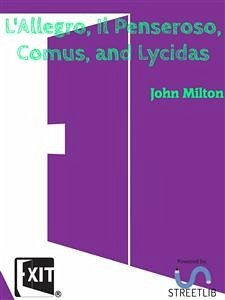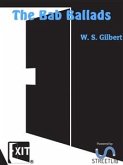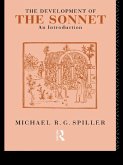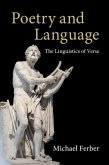L'ALLEGRO
HENCE, loathed Melancholy,
…………Of Cerberus and blackest Midnight born
In Stygian cave forlorn
…………'Mongst horrid shapes, and shrieks, and sights
unholy!
Find out some uncouth cell,
…………Where brooding Darkness spreads his jealous wings,
And the night-raven sings;
…………There, under ebon shades and low-browed rocks,
As ragged as thy locks,
…………In dark Cimmerian desert ever dwell.
But come, thou Goddess fair and free,
In heaven yclept Euphrosyne,
And by men heart-easing Mirth;
Whom lovely Venus, at a birth,
With two sister Graces more,
To ivy-crowned Bacchus bore:
Or whether (as some sager sing)
The frolic wind that breathes the spring,
Zephyr, with Aurora playing,
As he met her once a-Maying,
There, on beds of violets blue,
And fresh-blown roses washed in dew,
Filled her with thee, a daughter fair,
So buxom, blithe, and debonair.
Haste thee, Nymph, and bring with thee
Jest, and youthful Jollity,
Quips and cranks and wanton wiles,
Nods and becks and wreathed smiles
Such as hang on Hebe's cheek,
And love to live in dimple sleek;
Sport that wrinkled Care derides,
And Laughter holding both his sides.
Come, and trip it, as you go,
On the light fantastic toe;
And in thy right hand lead with thee
The mountain-nymph, sweet Liberty;
And, if I give thee honour due,
Mirth, admit me of thy crew,
To live with her, and live with thee,
HENCE, loathed Melancholy,
…………Of Cerberus and blackest Midnight born
In Stygian cave forlorn
…………'Mongst horrid shapes, and shrieks, and sights
unholy!
Find out some uncouth cell,
…………Where brooding Darkness spreads his jealous wings,
And the night-raven sings;
…………There, under ebon shades and low-browed rocks,
As ragged as thy locks,
…………In dark Cimmerian desert ever dwell.
But come, thou Goddess fair and free,
In heaven yclept Euphrosyne,
And by men heart-easing Mirth;
Whom lovely Venus, at a birth,
With two sister Graces more,
To ivy-crowned Bacchus bore:
Or whether (as some sager sing)
The frolic wind that breathes the spring,
Zephyr, with Aurora playing,
As he met her once a-Maying,
There, on beds of violets blue,
And fresh-blown roses washed in dew,
Filled her with thee, a daughter fair,
So buxom, blithe, and debonair.
Haste thee, Nymph, and bring with thee
Jest, and youthful Jollity,
Quips and cranks and wanton wiles,
Nods and becks and wreathed smiles
Such as hang on Hebe's cheek,
And love to live in dimple sleek;
Sport that wrinkled Care derides,
And Laughter holding both his sides.
Come, and trip it, as you go,
On the light fantastic toe;
And in thy right hand lead with thee
The mountain-nymph, sweet Liberty;
And, if I give thee honour due,
Mirth, admit me of thy crew,
To live with her, and live with thee,









